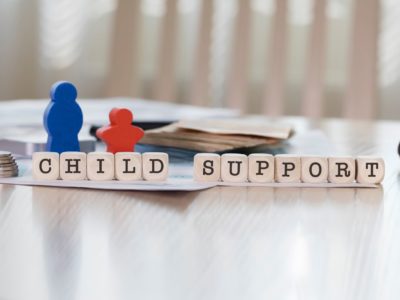
How Child Custody Proceedings Affect Domestic Violence Defense
Two courtrooms, two judges, two completely different sets of rules, but the same accusations following you into both. Domestic violence charges don’t stay confined to criminal court. They bleed into family court, affecting custody decisions and visitation rights. What you say in one courtroom can be used against you in the other, and the strategies that protect you criminally might hurt you in custody battles.
Why Criminal and Family Court Collide in Domestic Violence Cases
Criminal court decides whether you’re guilty of a crime. Family court decides what’s best for your children. These courts operate under different standards, different rules of evidence, and different burdens of proof.
In criminal court, prosecutors must prove guilt beyond reasonable doubt. In family court, judges make custody decisions based on preponderance of evidence, a much lower standard. Evidence that wouldn’t convict you criminally can still cost you custody or visitation rights.
The collision creates strategic dilemmas. Admitting fault or accepting a plea deal in criminal court might make you look guilty in family court. Fighting charges aggressively while family court proceedings are pending can create inconsistent positions that judges notice.
How Domestic Violence Charges Impact Custody Determinations
Family court judges must consider domestic violence when making custody and visitation decisions. In most states, there’s a legal presumption that awarding custody to a parent with a history of domestic violence is not in the child’s best interest.
This presumption doesn’t mean you automatically lose custody, but it shifts the burden. You must prove that granting you custody won’t harm the children. That’s difficult while criminal charges are pending or after a conviction.
The Best Interest Standard Gets Complicated
Family courts evaluate custody using the “best interest of the child” standard. Factors include each parent’s ability to provide a safe environment, history of abuse, and the child’s relationship with each parent.
Domestic violence allegations poison this analysis. Even unproven allegations raise questions about safety. Judges err on the side of caution when children’s welfare is at stake, which means restrictions on your custody often happen before any criminal conviction.
Protection From Abuse Orders and Emergency Custody
Many domestic violence situations involve Protection From Abuse (PFA) orders. When a PFA is granted, it typically includes emergency custody provisions giving temporary custody to the protected party.
These emergency orders happen quickly, often without you present. The standard for granting a temporary PFA is low. Once granted, these orders can remain in effect for months or years, fundamentally altering your relationship with your children during the entire criminal process.
The Strategic Dilemma: Defending Both Cases Simultaneously
When Silence in Criminal Court Speaks Volumes in Family Court
In criminal proceedings, you have the right to remain silent. Exercising that right can’t be used against you criminally. But in family court, your silence can be interpreted negatively. Judges may view your refusal to address allegations as evasiveness.
This creates pressure to explain your side in family court while protecting your Fifth Amendment rights in criminal court. Balancing these competing interests requires coordination between your criminal defense attorney and family law attorney.
The Plea Deal Problem
Plea agreements often involve accepting guilt to lesser charges or agreeing to anger management programs. These deals can minimize criminal penalties and avoid trial uncertainty.
But in family court, that plea can be devastating. Admitting guilt to any domestic violence offense creates a documented history of abuse that family court judges will consider.
How Plea Deals Affect Custody Decisions
- Judges view guilty pleas as admissions that abuse occurred
- Mandatory counseling suggests you have a violence problem
- Any criminal record affects custody evaluations and background checks
- Future custody modifications become more difficult with a conviction
Before accepting any plea deal, understand its impact on custody. Sometimes fighting the criminal charges makes more strategic sense when custody is at stake.
Discovery Sharing Between Courts
Information from one proceeding can surface in the other. Depositions, testimony, and documents filed in family court can become evidence in criminal court. Statements you make in custody hearings can be used by prosecutors.
This cross-pollination requires extreme caution about what you say and file in either proceeding.
Three Critical Timing Considerations
1. When Criminal Charges Come First
If you’re arrested before custody proceedings begin, the criminal case should generally take priority in your defense strategy. A criminal conviction creates facts that family court will use against you.
However, waiting for criminal resolution means potential months without normal access to your children.
2. When Custody Disputes Trigger Criminal Allegations
Sometimes domestic violence accusations emerge during contentious custody battles. These allegations may be strategic moves by the other parent to gain advantage.
When timing suggests accusations are custody-motivated, that context matters in criminal defense. However, family court judges are cautious about dismissing allegations as fabricated.
3. When Both Proceedings Happen Simultaneously
The worst scenario is fighting both battles at once. Criminal and family court dates compete for attention and resources. Coordinated legal representation becomes essential.
The Role of Evidence in Both Courts
Criminal Court Evidence Standards
Criminal courts have strict evidence rules. Hearsay is generally inadmissible. The prosecution must prove every element beyond reasonable doubt. You have the right to confront witnesses and challenge evidence.
These protections make criminal cases harder to prove. Many domestic violence cases rely heavily on the alleged victim’s testimony.
Family Court Evidence Standards
Family courts are more relaxed about evidence. Hearsay is often admissible. Judges can consider allegations even if criminal charges were dismissed or you were acquitted.
Family court judges also consider the “totality of circumstances.” A pattern of behavior, even if no single incident was proven, can affect custody determinations.
How to Protect Your Parental Rights While Defending Criminal Charges
Essential Protection Strategies
- Hire experienced attorneys for both criminal defense and family law who can coordinate strategy
- Never discuss your case on social media or with anyone except your attorneys
- Document your relationship with your children
- Comply fully with any court orders, even ones you believe are unjust
- Participate in any recommended counseling to demonstrate commitment to being a good parent
Why Coordination Between Attorneys Matters
Domestic violence attorneys in Philadelphia and other major cities focus on avoiding conviction for their clients. Your family law attorney focuses on protecting custody. These goals can conflict without coordination.
For example, your criminal attorney might advise silence while your family attorney wants you to testify about being a good parent. Having attorneys who communicate ensures your overall interests are protected.
The Importance of Complying with Court Orders
Even if you believe a PFA order is unjust or custody restrictions are unfair, violating court orders is catastrophic. Violations give prosecutors additional charges and prove to family court judges that you don’t respect legal authority.
Compliance demonstrates respect for the process. Judges notice which parents follow orders and which ones don’t.
Five Steps to Take Immediately
If you’re dealing with domestic violence charges and custody issues simultaneously, take these steps:
- Hire a Criminal Justice Lawyer Immediately: Don’t wait. Everything you say can be used against you in both courts.
- Retain a Family Law Attorney: Family court moves quickly. Emergency custody orders can be issued before you realize proceedings have started.
- Stop All Contact with the Other Parent: Unless court-ordered custody exchanges require it, cease all communication. Use only documented methods for necessary exchanges.
- Document Everything: Keep records of all interactions with your children, compliance with court orders, and evidence that contradicts allegations.
- Begin Counseling Voluntarily: Starting anger management or parenting classes before being ordered to shows initiative. It can help in both courts.
The Long-Term Impact on Your Relationship with Your Children
Beyond immediate legal consequences, domestic violence allegations and custody battles affect your relationship with your children for years.
Children often learn about allegations through court proceedings or from the other parent. How you handle the situation impacts their perception of you. Fighting for your rights while remaining focused on their wellbeing demonstrates your priorities.
Even if you face temporary restrictions, maintaining whatever contact is allowed and consistently demonstrating responsible parenting creates a foundation for rebuilding full parental rights later.
When to Consider Settling vs. Fighting
Not every case should go to trial in both forums. Sometimes settlement makes sense in one or both proceedings.
In criminal court, if the evidence against you is strong, a negotiated plea might be necessary. The question becomes whether you can negotiate terms that minimize family court impact.
In family court, if the criminal charges are weak or likely to be dismissed, pushing for temporary custody arrangements that preserve your rights until criminal resolution might be strategic.
These decisions require careful analysis of the strength of evidence in both cases and the likely outcomes of trials.
Protecting Your Rights in Both Courts
The intersection of criminal domestic violence charges and child custody proceedings creates one of the most challenging legal situations parents can face. What happens in one court affects the other, and the strategies that protect you in one forum can hurt you in the other.
Success requires experienced legal representation that understands both criminal defense and family law, coordinated strategy across both proceedings, and careful attention to how every decision in one court impacts the other.
If you’re facing domestic violence charges while navigating custody issues, consult Brennan Law Offices. With decades of criminal defense experience, our attorneys understand how these cases intersect and can help you develop a defense strategy that protects both your freedom and your parental rights.




